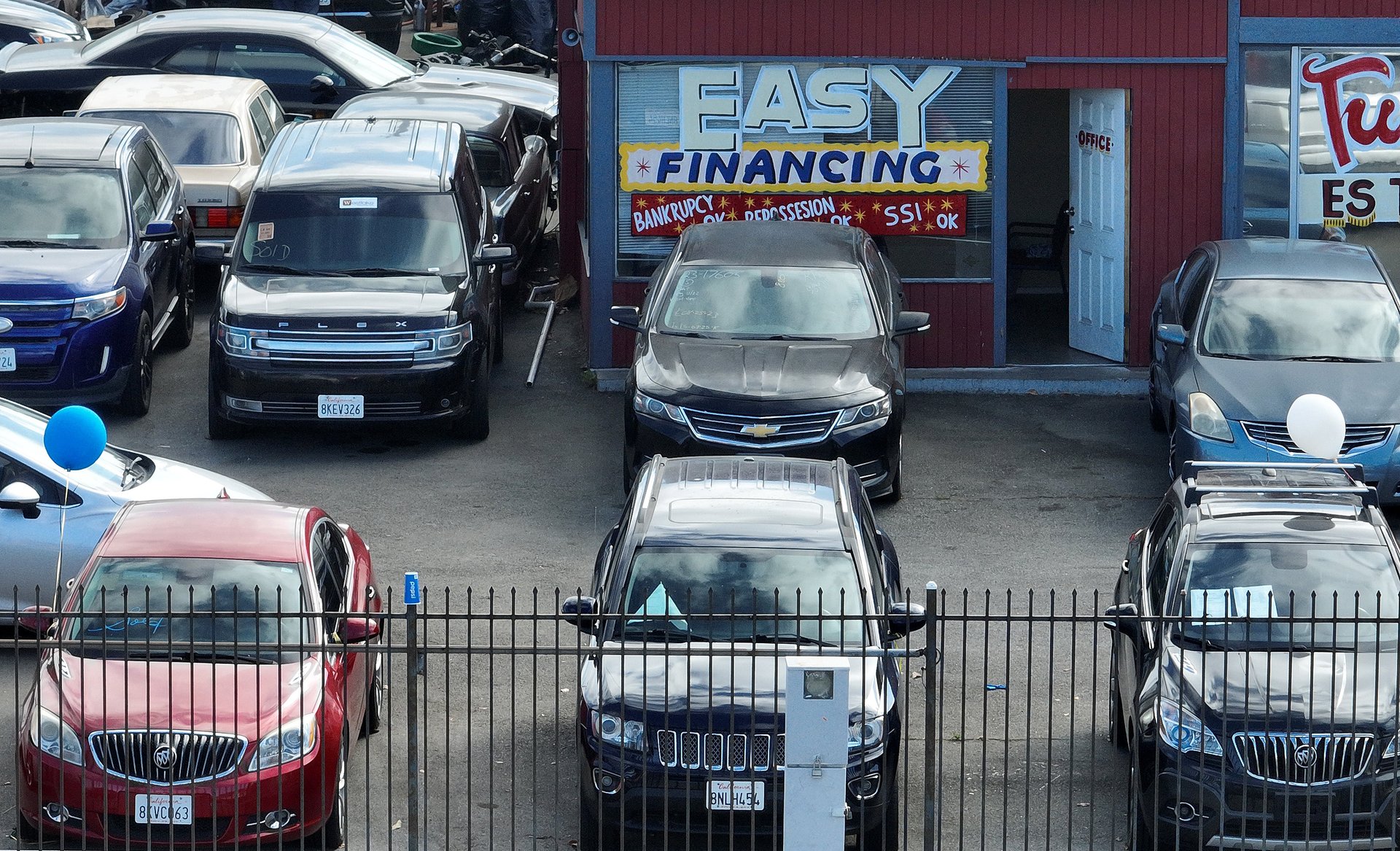Americans are more underwater on their car loans than ever before
An increasingly large number of Americans owe more on their auto loan than their car is worth

Americans increasingly owe more on their auto loans than their cars are worth, according to new data from Edmunds.
Suggested Reading
Analysts at Edmunds said upside-down car loans hit an all-time high in the third quarter of this year — the average amount owed on one is $6,458. More than 24% of all trade-ins toward new vehicle purchases had negative equity, and 22% of those with negative equity owed more than $10,000.
Related Content
“Consumers owing a grand or two more than their cars are worth isn’t the end of the world, but seeing such a notable share of individuals affected at the $10,000 or even $15,000 level is nothing short of alarming,” Jessica Caldwell, Edmunds’ head of insights, said in a press release.
Caldwell said “a combination of uncontrollable market factors and misguided consumer financial decisions” are contributing to the rise of upside-down loans.
Many people who bought cars in 2021-22 during shortages paid over the manufacturer’s suggested retail price, and trade-in values for near-new cars have taken a hit recently, she said.
Two other contributing factors to the rise in this type of loan: many consumers are taking out longer-term loans for cars to reduce monthly payments and people are increasingly trading in their cars before it’s financially smart to do so.
Ivan Drury, Edmunds’ director of insights, said in the press release that it’s not just people buying luxury cars who are underwater.
“It’s easy to assume that only specific consumers trading in higher-ticket luxury vehicles are the ones underwater on their car loans, but the reality is that this is a problem across the board,” he said.
To avoid the negative equity trap, Edmunds recommends sticking with your car for longer and being diligent about regular maintenance to maintain your car’s value.
“Consider vehicles proven to have higher resale values, or ones that offer other financial benefits like better mpg or lower insurance costs,” Drury said. “But most importantly: Find a car you really want and like, because if you don’t you’ll probably end up making the same mistake of trading in your newish vehicle too soon.”